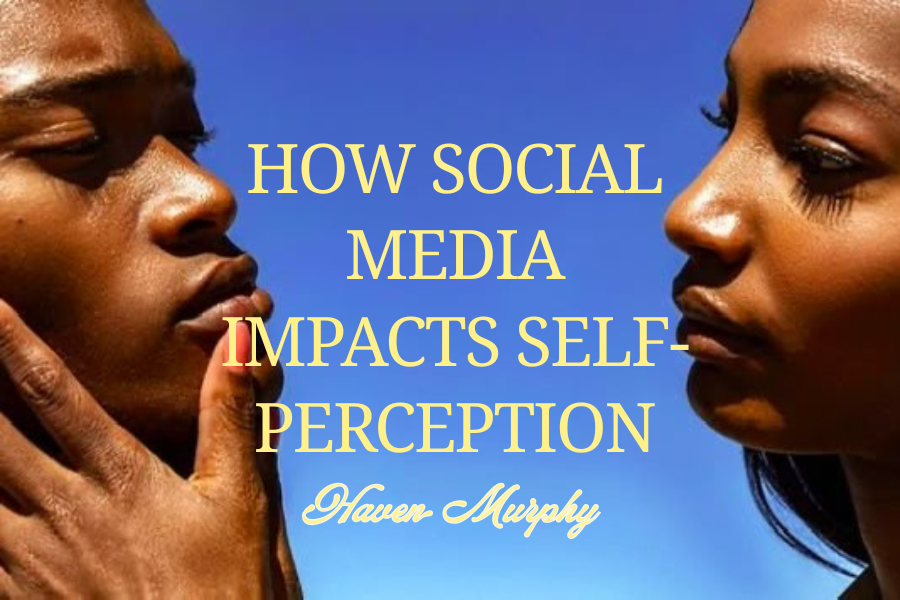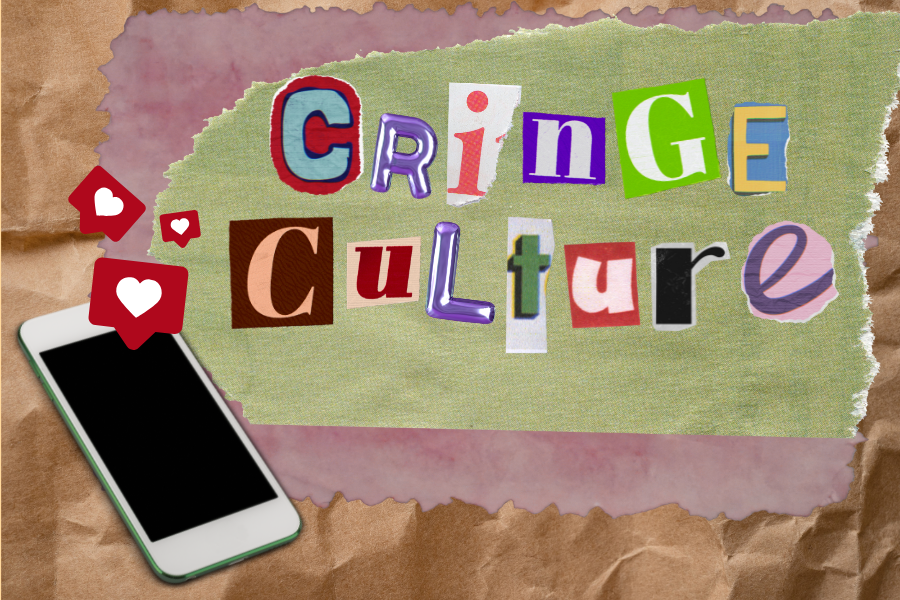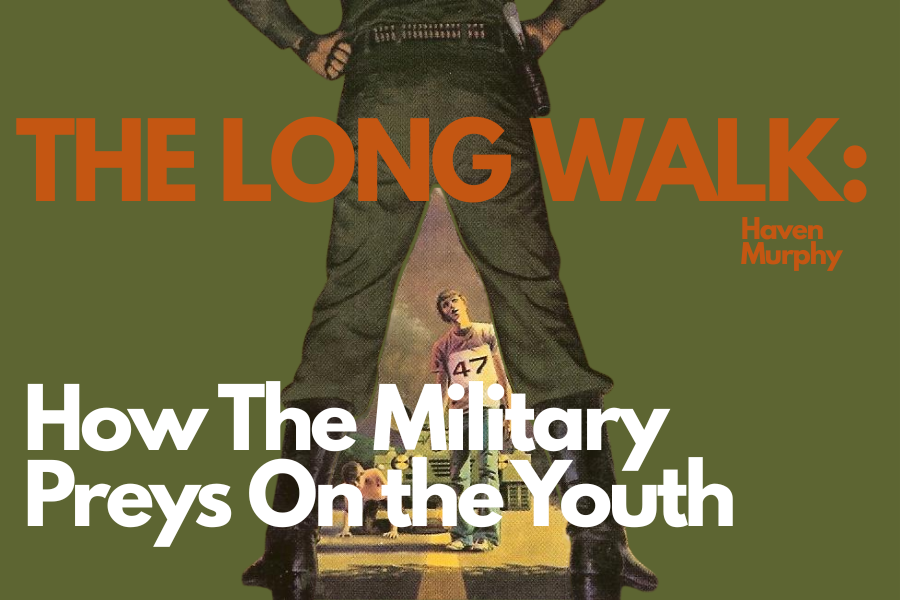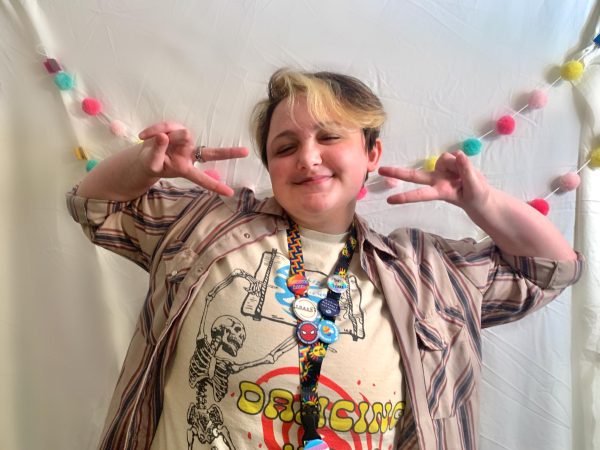With the recent release of Our Flag Means Death Season Two, I couldn’t help myself but to peak at the reviews so far. For the most part, they’re glowing. Everyone who got to see it in full before the rest of the world are rhapsodizing over the new season. The general consensus seems to be that the show has retained its charm, personality, and expert writing. However, there is one critique I have seen in the sea of praise: the show is fan service.
What is fan service? Fan service, as defined by dictionary.com, is “material added to a work of fiction for the perceived or actual purpose of appealing to the audience.” So, how is that relevant to Our Flag Means Death? Fan service can be used in different ways and is sometimes pinned to pieces of media that do not deserve it. One way of talking about media being fan service is saying something feels like “fan-fiction”, meaning that it’s cheesy and only seen within fandom spaces. Of course, most fan-fiction is centered around characters’ romantic relationships (more commonly called ships), both those that are canon and those that aren’t. Many fan-fictions are written to give the characters a happy ending, write romantic scenarios, play with character dynamics, expand upon things featured in their source, and all around serve the purpose of letting fans unleash their creativity within a piece of fiction that they are already passionate about. When stories are called “like fan-fiction” by media outlets, it means that the story feels as if it isn’t written by the original writing staff, which insinuates that it can be out of character, stereotypical, and follows popular tropes.
So when people say that Our Flag Means Death Season Two is “fan-service”, they mean that they believe the series has lost its purpose as a show and only serves to appeal to the fans supporting it, even if that involves breaking out of character tropes. Essentially, it’s an accusation that the creators only want to appease their audience for money instead of telling a legitimately good story, and that they are cheating people out of the narrative that they love, in favor of monetary gain.
However, with even just the first three episodes of Our Flag Means Death Season Two released, I can assure you beyond reasonable doubt this is nowhere near fan service. And trust me, I do know what fan service is. Some egregious examples to me would be Riverdale or Supernatural. When it comes to accusations of fan service on shows that do not feature anything of the sort, I’ve begun to notice a troubling pattern; the media being accused of such a thing always happens to feature queer characters in a queer narrative. This, to me, begs us to ask a very important question: Is it fan-service or is it just gay?
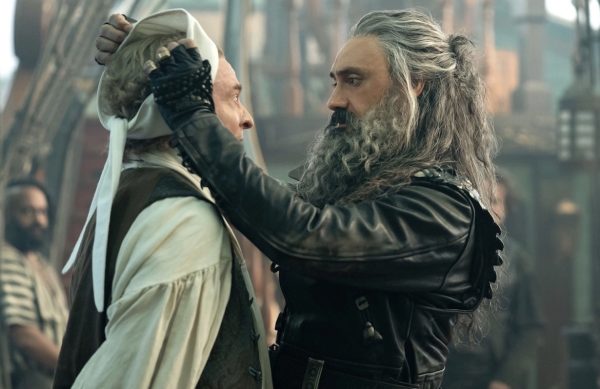
Photo depicts Blackbeard (Taika Watiti) lifting a blind fold off of Stede Bonnet (Rhys Darby). Photo from Aaron Epstein (Can be found on his Instagram). It is a behind the scenes shot from Episode 8 of Season 1.
Our Flag Means Death follows Stede Bonnet, a wealthy landowner who has run away from his life to become a pirate. Stede, calling himself The Gentleman Pirate, is terrible at his new goal. Despite this, he catches the attention of the widely known and mythologized Blackbeard. Blackbeard and Stede quickly become very close with one another, lamenting over how they wish to be different. Blackbeard talks about how he doesn’t like the reputation he’s gathered. He wishes he would be treated like a normal human being who gets to lead a normal life. He even tells Stede his real name, Edward “Ed” Teach. Stede, on the other hand, wants to be more daring and venture outside of his comfort zone. He has the urge to take risks and to not force himself into a life where he’s trapped to constantly do the same thing in a monotonous cycle. Together, they teach one another how to take it easy while also embracing life as it changes. As they learn from each other and about each other, they begin to fall in love with one another. So much so that when the British navy shows up to capture and kill Stede, Ed surrenders himself to serve the crown if it means he and Stede get to survive and remain together. Miraculously, this works and Ed and Stede quickly begin to plot their escape. As they do, Ed confesses his love to Stede and they share a kiss. The second to last episode ends with Stede running back to his old life after he is scared off by a member of the British navy, while Ed waits and waits for a Stede who never shows up. Ed, abandoned and betrayed, takes the small rowboat he and Stede would have used to flee, and rows back to their old ship and crew. As Ed spirals into becoming the mythologized depiction of Blackbeard, Stede returns home to find that the world has moved on without him, including his family. The first season of the series wraps up with Stede coming to terms with the fact that he loves Ed and staging his death to return to him while Ed becomes completely consumed by his heartache, taking it out on anyone in his path. While the second season has only just begun, there have been many important developments in just three episodes. Stede is doing all he can to find Ed again, hellbent on reuniting while Ed falls into a ruthless cycle of raids, isolation, and violence where no one is safe in his presence.
The Max exclusive show’s first season alone has captivated audiences worldwide, claiming the title of the most popular show across streaming platforms. In a groundbreaking feat, it even took the number one spot for most in-demand show above Disney’s beloved Moon Knight. Despite Our Flag Means Death being a shamelessly queer show with numerous canon queer couples, a gender queer lead character and more, sources have still tried to erase the show’s queer identity, attempting to call Ed and Stede’s relationship a “bromance” despite the characters sharing a kiss and outright saying that they are in love.
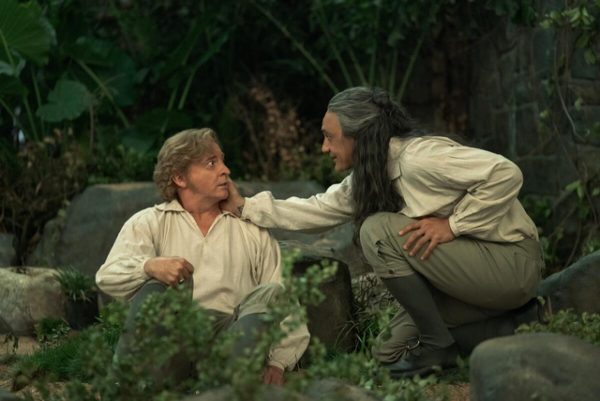
Ed Teach (Taika Watiti) holding Stede Bonnet’s (Rhys Darby) face as the couple plan to escape the British. Credit: Aaron Epstein, sourced from Mashable.
Stede: How does it feel… to be in loveMary: It feels… easy. It’s just like breathing. He understands my idiosyncrasies, (cue flashback of Ed wandering around Stede’s wardrobe) finds them charming even. (cut back to the wardrobe with Stede showing Ed a pair of pants he likes. Next cut to Ed teaching Stede to sword fight) We expose each other to new things, new ideas. (Cut to Stede showing Ed what “high class” parties look like, teaching him about which silverware to use. Then to Ed showing Stede how to pry information out of a “captive”) And we laugh a lot. (Another flashback, this one with Ed and Stede laughing with each other. One is in the jungle, the other from a sword fight training scene) We just pass the time so well. (Ed and Stede, legs dangling over the ship as they share a drink and laugh.) I’d call those things love. I hope you find that
Stede: I think I have.
Mary: Really? What’s her name?
Stede: Ed. His name is Ed.
– Our Flag Means Death, Season 1 Episode 10
Now that the second season is out with love as the focal point, there is no escaping the romance part of the romantic comedy. This is where claims of fan service come into play. Being unable to deny the love story, people have accused the show of fan service despite the second season giving long time fans whiplash as the show defies expectations.
There’s no nice way I can phrase what I have to say in response so I’ll just say it; is it “fan-service” or do you just not like seeing gay love stories being told on your screen?
Obviously the accusation of fan-service has been applied to media about straight couples, but the frequency at which it is thrown at shows featuring LGBT storylines is honestly appalling! If a media has gay characters, the immediate response is to say it’s only done to gather queer viewers. It seems that people think gay characters don’t deserve a spot on television. This is especially common when gay relationships are shown to be healthy and/or well-written, as if being gay ruins the story as a whole. This idea is outrageous considering much of the time, character’s queer identities can help a series explore deeper themes, societal issues, and break down barriers by opening up conversation. And yet, because they’re queer, the shows are labeled as fan service. To some it seems no show can truly be good if it includes queer story lines.
The truth is, if the same plot points, and overall story was the same along with the characters being a man and a woman, this critique would be non-existent, and I have a perfect example to illustrate this.
Beloved author of the Percy Jackson series, Rick Riordan, released a book earlier this year on May 2nd titled The Sun and The Star, taking place after the three part and 15 book series of Percy Jackson and the Olympians. The story follows Will and Nico, a canon gay couple, beloved by fans of the series, as they travel through the deepest hellish pits of the underworld, also called Tartarus. Their goal is to rescue Nico’s friend Bob but along the way Will and Nico are taught how to process their traumas from living as demi-gods. The pair always stay together and can be seen exchanging “I love yous”, holding hands, and all around being an openly loving couple, supporting each other whenever they need and talking through their emotions as they struggle through their quest. It’s an amazing story about healing from trauma, processing complex emotions, and accepting both the light and dark parts of ourselves and loved ones.
“Nico was not afraid of the light anymore.
He and his boyfriend lay on the bed in silence, his leg looped over Will’s and his fingers tracing the lines on Will’s palm. No one had ever loved him like Will did, and that was no longer terrifying. How could it be? How could acceptance and respect and desire be anything but the best things for Nico?
His life had been ruled and nearly ruined by gods and demons, by wars and prophecies, by doubt and fear. But as he watched Will drifting off to sleep, none of those things mattered anymore.”
– Rick Riordan and Mark Oshiro, The Sun and The Star
The Sun and The Star, like Our Flag Means Death has received two reactions; adoration, or “fan-service” allegations. This on its own is frustrating, but well versed fans of the Percy Jackson series will know that the beloved couple of Percy and Annabeth did the exact same thing. They struggled through Tartarus, helped each other through mental and physical obstacles, and worked to accept the darker aspects of themselves. However, the fanbase of the Percy Jackson books absolutely adore this part of the series. They praise it for delving into darker topics, adore Percy and Annabeth’s relationship, and use it as a testament to show how much Percy and Annabeth truly love each other.
So, how are Percy and Annabeth different from Will and Nico? What about their identical circumstances makes one fan-service and the other a heartfelt love story? Narrative wise, nothing. Obviously the characters are different but at its core, they mirror each other. The purpose of this mirroring is to show how queer couples and straight couples are no different from each other. They both have the same struggles, same love, and are both regular humans like everyone else. But obviously, some audiences completely miss the point of these stories in the first place. Will and Nico are only labeled as fan-service because they are a gay couple and people can’t fathom queer characters beyond fan-fiction. It’s blatant hypocrisy that misses the point of showing queer couples in media; to normalize and show the world that queer people are the same as everyone else.
There are so many more examples of this occurrence across many different stories, but to dissect all of them would take ages. Cases like these truly make me wonder why people see queer people like me as so different. As a gay and asexual trans man, it’s so frustrating when people treat characters you see yourself in like nothing but fiction, as something that doesn’t happen outside of a teenage girl’s journal. People who preach equality fall into this hole, trying to push queer stories out of the way, further alienating and hiding us.
You don’t have to be a member of the LGBTQ community to enjoy watching gay shows, liking gay characters, or enjoying pieces of queer culture in general. My identity isn’t something out there just to make people happy, it’s for myself and that’s the same as people like me in the media. When you label our existence as something to appease people, all you’re doing is telling us that we don’t deserve to see ourselves on TV, in movies, or in books.
But even then, what’s so bad about fan-service anyway? What’s so bad about things being cheesy, cliche and stupid? Not all queer media needs to be a masterpiece to exist. I almost want to say we’ll never reach true equality until there’s just as many bad gay Christmas movies as there are straight ones.
Next time you find yourself consuming a queer story and you wonder if relationships are written to appeal to fans, take the time to sit and consider; “Is this fan-service, or is it just gay?”



